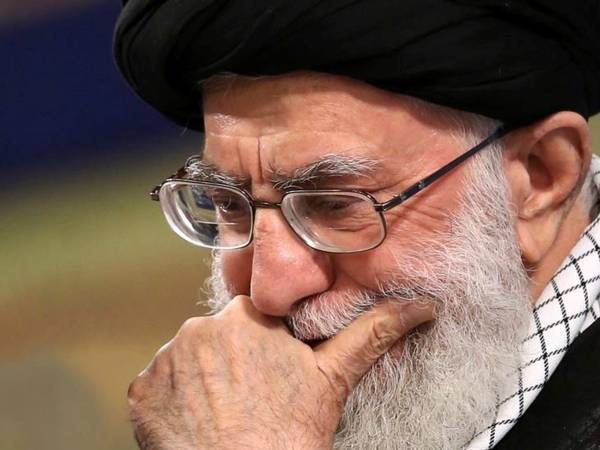Iran’s former president Hassan Rouhani has warned the Supreme Leader over the economic perils of delaying a nuclear deal with the West, some sources have said.
One day earlier a journalist in Iran tweeted that Rouhani met with Ali Khamenei for one hour in recent weeks. So far there is no official confirmation or denial about the report.
Paris-based analyst Reza Alijani told Iran International TV on Monday that a group known as "the wise men" including Rouhani, former Parliament Speaker Ali Larijani, former conservative lawmakers Morteza Nabavi and Mohammad Reza Bahonar, and others, have warned Khamenei about the dire situation of the economy and called for reaching an agreement with the West, particularly the United States, before the economic crisis endangers the regime.
One more source who is in Iran related a similar account of the meeting.
The same group was assembled in late 1980s and urged Ayatollah Rouhollah Khomeini to end the war with Iraq and reduce tensions between Tehran and Washington to save the regime.
At the time, Khomeini disbanded the group but took their advice, admitting that it was a "chalice of poison" he had to drink.
Alijani told Iran International TV that Rouhani communicated the group's message to Khamenei in his recent meeting with him, but Khamenei also ordered the group to stop their meetings. However, it is not yet known if he accepted to consider the group’s suggestion. Nonetheless, Alijani observed that during recent days, Iran has been withdrawing from some of its hardline positions in the nuclear talks.
Alijani mentioned that Tehran has accepted to allow the UN nuclear watchdog, the IAEA to reinstall cameras in a nuclear workshop in Karaj. Tehran has also stopped mentioning its demand for lifting all US sanctions first for talks to continue, and its rhetoric about a US guarantee not to withdraw from the agreement again.
However, everyone in Iran, as well as politicians and negotiators abroad are convinced that it is Khamenei who makes the final decision about the nuclear issue and other political matters in Iran.
Alijani said that Iran is in a “state of emergency” as far as the country's economy is concerned. Nonetheless, Khamenei might insist on his hardline positions and may not accept a settlement although the West has agreed to lift the JCPOA-related sanctions and accepted to limit the discussions to Iran's nuclear program.
Under economic pressure, Khamenei has to make some sort of compromise and return the nuclear program to where it was before the 2018 US pull-out, but he might still choose the worst-case scenario of carrying on with his non-compromising positions, which would lead to “a catastrophe for the Iranian nation”, Alijani maintained.
In the meantime, Iran’s economy is in its worst situation since the 1979 revolution and the new Iranian government led by staunch hardliner Ebrahim Raisi has brought the economy to a standstill partly because six months after his election, neither he nor his government know who is in charge of the economy. His minister of economy is said to be on the verge of being impeached by the parliament for failing to sort out the crisis.
